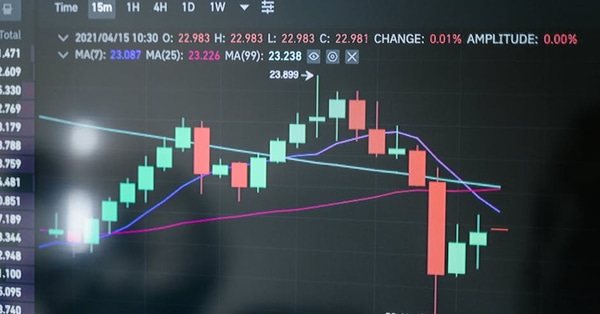Europol Warns of Growing Sophistication in Crypto Crime Tactics
Europol warns that criminal activities involving cryptocurrency are becoming increasingly sophisticated, prompting deeper cooperation among EU law enforcement agencies.
Introduction
As the world of cryptocurrency continues to evolve, so too do the tactics employed by criminals who seek to exploit this emerging technology. In a recent statement, Europol, the European Union’s law enforcement agency, has raised alarms about the increasing sophistication of criminal operations that leverage blockchain technology. This warning comes amid a backdrop of enhanced cooperation and investment by EU law enforcement agencies aimed at tackling these illicit activities.
The Rise of Cryptocurrency Criminality
Cryptocurrency, once seen as a fringe technology, has gained immense popularity since the inception of Bitcoin in 2009. With its promise of anonymity and decentralization, it has attracted not only investors and innovators but also criminals. From ransomware attacks to money laundering, the applications of cryptocurrency in criminal enterprises are diverse and growing.
Europol's latest report highlights a troubling trend: criminal organizations are becoming increasingly adept at using blockchain technology to cover their tracks and conduct illicit activities. The agency indicates that these groups are not only evolving in their methods but are also leveraging advanced technologies such as artificial intelligence and machine learning to enhance their operations.

Europol's Response: Cooperation and Investment
In light of these developments, Europol has committed to deeper cooperation with national law enforcement agencies and international partners. The agency aims to bolster its capabilities to track and combat crypto-related crimes more effectively. This includes sharing intelligence, best practices, and resources among countries, particularly within the EU.
Europol also plans to invest in training programs for law enforcement personnel, equipping them with the skills necessary to understand and investigate complex blockchain transactions. This investment is crucial, as many law enforcement agencies currently lack the technical expertise needed to navigate the crypto landscape.
Understanding Blockchain Abuse
Criminals are increasingly exploiting blockchain's inherent features for nefarious purposes. For instance, the pseudonymous nature of cryptocurrencies allows users to transact without revealing their identities, making it difficult for authorities to trace illicit funds. Criminals employ various techniques, such as mixing services, that obscure the origins of transactions and further complicate investigations.
Additionally, the rise of decentralized finance (DeFi) platforms has created new opportunities for fraud and theft. These platforms, which operate without central authorities, have been targeted by hackers who exploit vulnerabilities in smart contracts, leading to significant financial losses for investors.

Furthermore, the emergence of non-fungible tokens (NFTs) has introduced unique avenues for money laundering, as high-value digital assets can be traded and sold with relative anonymity. Europol has pointed out that these developments require law enforcement to adapt their strategies continuously.
The Global Context
The increasing sophistication of crypto crime is not an issue confined to Europe. Globally, authorities are grappling with the challenges posed by digital currencies. In the United States, the Department of Justice has launched various task forces aimed at combating cryptocurrency-related crime, recognizing the need for a coordinated approach.
Countries around the world are also implementing regulatory measures to monitor and control cryptocurrency transactions more effectively. For instance, the Financial Action Task Force (FATF) has established guidelines for cryptocurrency exchanges to ensure they comply with anti-money laundering (AML) regulations. These guidelines aim to create a more transparent environment and deter illicit activities.
The Role of Technology in Combatting Crypto Crime
As criminals refine their tactics, law enforcement agencies are also turning to technology to stay one step ahead. Blockchain analysis tools are being developed and utilized to track and analyze transactions on various networks. These tools can identify suspicious activity and help investigators trace the flow of funds, even through complex layers of transactions.

In addition, advancements in machine learning and AI are being integrated into tracking systems, enabling real-time analysis of large datasets. This technological edge is essential for identifying patterns and behaviors associated with criminal activities, allowing law enforcement to act swiftly.
Conclusion
The battle against cryptocurrency-related crime is likely to intensify as criminals continue to innovate and adapt. Europol’s commitment to enhanced cooperation and investment marks a crucial step in addressing this growing threat. By fostering collaboration among law enforcement agencies and leveraging advanced technology, there is potential for a more robust response to the challenges posed by sophisticated crypto crime.
As the landscape of digital currency continues to evolve, it will be imperative for law enforcement to stay abreast of trends and emerging threats. The stakes are high, not only for the integrity of the financial system but also for the safety and security of individuals and businesses in an increasingly digital world.
Tags:
Related Posts
Unlocking Blockchain: Your Simple Guide to Understanding It
Curious about blockchain? This beginner's guide breaks it down and explores how this revolutionary tech can enhance your daily life. Dive in!
Your Essential Guide to Choosing a Hardware Wallet
Wondering how to protect your crypto assets? Dive into our guide on selecting the best hardware wallet for your digital fortune!
Unlocking Blockchain: Your Guide to Getting Started
Curious about blockchain? Join me as we unravel this game-changing technology in a simple, relatable way. Let's make sense of it together!
Unlocking Smart Contracts: Your Simple Guide to Blockchain
Curious about smart contracts? Discover how they work and their benefits in this easy-to-follow guide for beginners in the blockchain world!
Unlocking DeFi: Top 5 Platforms for Yield Farming in 2024
Curious about yield farming in 2024? Discover the top 5 DeFi platforms that can help you maximize your crypto profits this year!
Unlocking NFTs in Real Estate: The Future of Ownership
Curious about how NFTs are reshaping real estate? Discover the potential of digital property ownership and what it means for investors today!